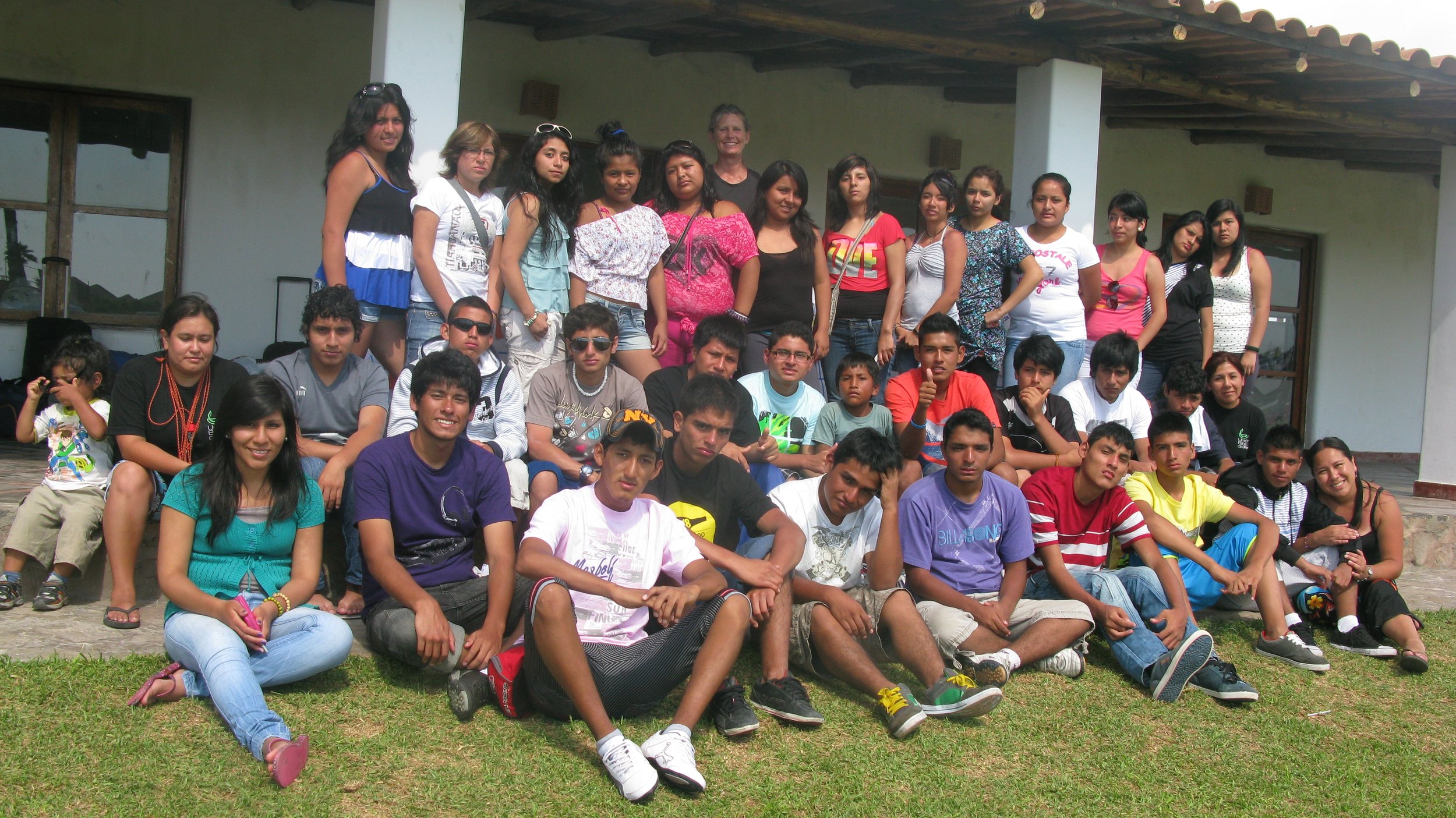Vision and Impact
The personal, social and cultural themes in this documentary are multifold and overlapping. The featured relationship is between an indigenous deaf boy, Dante, and Holly, a privileged, white woman researcher, whose paths converge and transcend the norms of what could be a more superficial relationship to unexpectedly that of mother and son. The second deaf protagonist, Junior, is from the capital city of Lima, thereby complementing urban with indigenous perspectives. Holly and Dante’s unique story unfolds into a mutual relationship of love and personal growth, moving fluidly among cultures and languages that include: Deaf, hearing, indigenous, urban, Peruvian and U.S.; Quechua, Spanish, English, Peruvian Sign Language (LSP) and American Sign Language (ASL).
Most deaf children in Peru, and in many countries, are fortunate if they acquire sufficient sign language to communicate basic needs and thoughts. Discrimination against deaf adults prohibits employment, or results in less pay than hearing people in the same job, and many are forced to live off of handouts.
This awareness-raising documentary includes interviews with prominent deaf adults, deaf educators, and parents in Lima and Cusco, who share problems with and propose solutions for Deaf rights in Peru, and ultimately basic human rights.
-
Dante and Holly reach unforeseeable depths of personal experience and compassion because of their unusual union and commitment to one another. Their life paths are profoundly changed through their lived intersections and embracing of overlapping worlds: deaf/hearing; indigenous/international; adoptive son/mother. The main themes (as outlined below) are more poignant and accessible because they are presented through a powerful personal story. The simple and profound hope is that the documentary will inspire on a basic, human-heart level.
-
Most people consider the human experience of acquiring language as a child to be a given, but many deaf children and adults do not have full, or any, language, which severely limits the understanding of and interaction with family members and the world around them. Dante’s deafness and lack of language caused the misperception of his family and community that he was intellectually disabled. His nickname growing up was “sonso” (stupid). Dante’s awakening through acquisition of sign language shows the most basic need and right of communication that leads to cognitive learning and human relationship.
-
Dante’s experience represents deaf children in Peru, and everywhere, who deserve the very same chance at life as hearing children. This documentary can stimulate dialogue in Peru on the individual and institutional levels in regards to rights and services for deaf children and adults. Expertise and personal opinions are expressed through interviews in Lima and Cusco with: deaf adults and linguistic models, deaf educators, interpreters, and Lima’s ombudsman for the defense and promotion of persons with disabilities.
-
My determination to change Dante into a hearing person through the use of hearing aids and speech therapy led to the discovery that this path was not possible for him, nor were cochlear implants in Peru. My process of acceptance and then full support of who Dante is and what he needs as a deaf person can inspire other hearing parents who may be living a similar frustration of wanting their child to be other than what he/she is. This can extend to any disability or any sort of “othering” on the part of the parent. Ninety percent of deaf are born to hearing parents, yet only about ten percent of hearing parents learn how to sign. I learned to sign along with Dante, and this support and communication dramatically improves relationship and connection between hearing parents and their deaf child.
-
Indigenous Andean population has experienced discrimination since early colonial days. What is unique in this documentary is showing discrimination within an indigenous community. People with disabilities are kept sheltered in their homes, there is a sense of shame and even being cursed. In the Q’eros community we hope that the inspiring story of one of their own will help to de-demonize disability, and show, through Dante’s grandfather’s transformation, that deafness, and therefore other disabilities, can be held differently, with more acceptance. Main protagonists such as Dante, indigenous and deaf, Verónica, lesbian and deaf, and Gabriela in a wheelchair, often express their experience as one of being “invisible” or voiceless. The call is for visibility, recognition and equality, which again is translatable to many countries and personal experiences.


